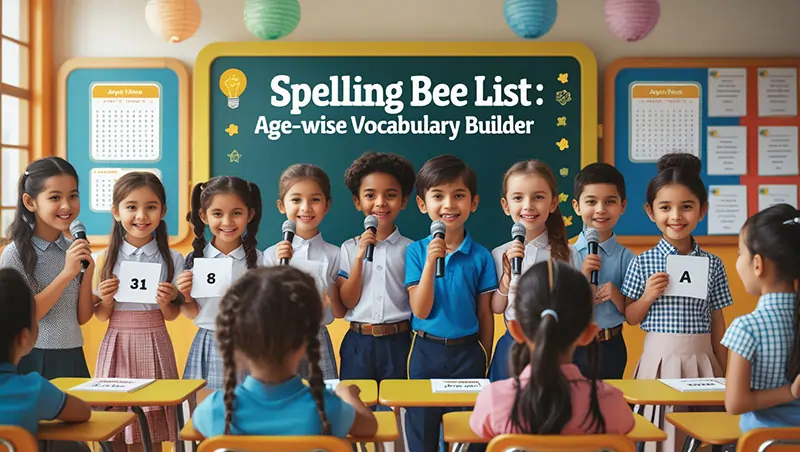The Magic of Angel Numbers for Kids and Their Beliefs
In today’s world, filled with so much modern noise, parents and educators are always looking for unconventional ways to inspire children. One such magical tale is about angel numbers. Angels are believed to be guardians who send numerical messages to those in need of guidance, love, and support. Let’s see how having angel numbers around your child can be an enchanting experience.
What Are Angel Numbers?
Angel numbers are sets of digits believed to have special meaning and offer messages from the spiritual world. Anything from the time on your clock, a license plate number, or a street address might reveal an angel number that you should pay attention to. Numerology relies on this idea of interpreting divine messages sent by angels.
Adults aren’t the only ones who see angel numbers. Because children have pure hearts and vivid imaginations, they may experience these ‘numbers’ more because they haven’t yet lost their innocence. By teaching children about angel numbers, you can help them be more observant and aware, and they might actually see their angelic signs.
Understanding Angel Numbers for Kids
Kids are naturally drawn to stories, magic, and unseen worlds. Angel numbers can gently and playfully introduce them to the reassuring concept that they are never truly alone and that their guardian angels are watching over them. When they start noticing the same numbers repeatedly in their day-to-day lives—on clocks, license plates, or receipts—they can be taught to define these sequences as symbolic communications from the universe, filled with love, support, and encouragement.
For example, a series of 1010 might appear to a child, conveying a sign of turning points and self-mastery. 1010 can represent the beginning of new chapters, ventures, and opportunities, as well as the importance of believing in themselves. A child who tunes into these numbers might engage in a depth of wonder, curiosity, and connectivity to the world around them.
Creating an ongoing dialogue with kids about what these numbers mean to them, and encouraging them to express their feelings and thoughts creatively through stories or drawings, can elicit newfound creative and imaginative perspectives as they work through the experience. Exploring angel numbers can serve as a gateway for children to cultivate an awareness of themselves and the world around them, promising a sense of peace and support as they walk their paths.
Common Angel Numbers and Their Meanings
- Angel Number 111
111 is a sign of new opportunities and a fresh start for kids. It’s generally seen as a powerful source of positivity. It can act like a wake-up call, reminding them that everything is within their control and suggesting they focus on their soul’s thoughts and intentions, as they hold the keys to their future reality. - Angel Number 222
The number 222 symbolizes balance and harmony. Children who come across this number can be reminded to strive for harmony in their interactions with others. It can also encourage them to aim for a more balanced approach to life, urging cooperation and reconciliation. - Angel Number 333
When children see the number 333, guardian angels are communicating that they’ll receive an abundance of love, support, and protection. It tells them, “You are loved, you are guided, you are fully supported; trust your abilities and instincts.” - Angel Number 1010
Angel number 1010 calls children toward a spiritual awakening. It’s a signal for them to grow, learn, and follow their passions. It’s a nod of appreciation and an assurance that they’re on the right track, encouraging them to deepen their trust in their path.
How to Recognize and Interpret Angel Numbers
Angel numbers are believed to be a sign from the Universe, so recognizing these numbers requires a healthy level of attunement to the numbers that show up repeatedly in everyday experiences. This repetition can present itself in countless ways—on a digital clock, a license plate, a receipt, or even during a scroll on social media. Educators and parents can play an important role in training children to notice these numbers by directing their attention to them during daily activities. For example, when an adult is checking the time on a digital clock, they could point out a sequence of numbers and ask the child to do the same while paging through a book.
In each case, based on the child’s life context, the child will be invited to interpret the sequence in light of what they know about the meanings of the numbers involved. The meaning attached to a sequence of digits is often related to the specific quality of the energy the angel wants to transmit to the viewer at that time. It’s important that the child’s feelings and experiences are discussed openly so they feel entitled to make sense of the numbers’ meanings. For example, if a child sees 3:33 three days in a row during a difficult time—perhaps after a bad day at school—the observation may be interpreted as a supportive sign that their angelic guardian is taking care of them.
Moreover, having children keep track of the angel numbers they see and their emotions each time they see them can be valuable for interpretation. Every time a child notices an angel number, they’re reminded of the angel’s presence and prompted to tap into their current state of being. They can reflect on how they felt when they first noticed a particular angel number and how they’ve evolved since then. This practice can strengthen their connection to the spiritual realm and their own inner well-being.
Incorporating Angel Numbers into Daily Life
- Morning Rituals
Spend time early in the day getting your kids to hunt for angel numbers. Check the time when they wake up and see what numbers are on the cereal box. Talk about any numbers they found and why they think they might be angel numbers. - School Activities
Teachers can use angel numbers to illustrate math problems and reading exercises. Children will enjoy solving them and will realize that these numbers are everywhere in their surroundings. - Bedtime Stories
End the day by telling your child a bedtime story with angel numbers in it—a story about guardian angels or a narrative in which the protagonist finds and interprets angel numbers wherever they go. These stories can reinforce the positive meaning of the numbers.
Real-life Examples and Testimonials
Yes, it’s true that many teachers and parents report that angel numbers have been extremely helpful to children. Here’s what one elementary school teacher said: “My students are more focused and positive since we started discussing angel numbers in class. The children share their angel number sightings and how they interpret these appearances. It’s making the students feel like they are all in this together.”
Moms and dads have said their children have become more confident after seeing angel numbers. One parent described how her daughter had been worried about starting at a new school and then began seeing 222, a number that made her feel secure and balanced.
Conclusion and Next Steps
Teaching children about angel numbers is a truly magical and uplifting experience. It enables them to feel more connected, positive, and mindful in all aspects of their lives, with the knowledge that they can read the small yet significant signs of support and guidance from their angels. This knowledge fills them with the understanding that they are loved and protected.
Parents or adults who work with young children may wish to incorporate angel numbers into the everyday rhythm and learning of their lives. Encourage children to share their experiences and interpretations, promoting delight and conversation.
Are you ready to learn more about angel numbers and unlock a magical connection between you and the skies above? Sign up with Angel Numbers Explorer today and join our friendly community of parents and educators.



